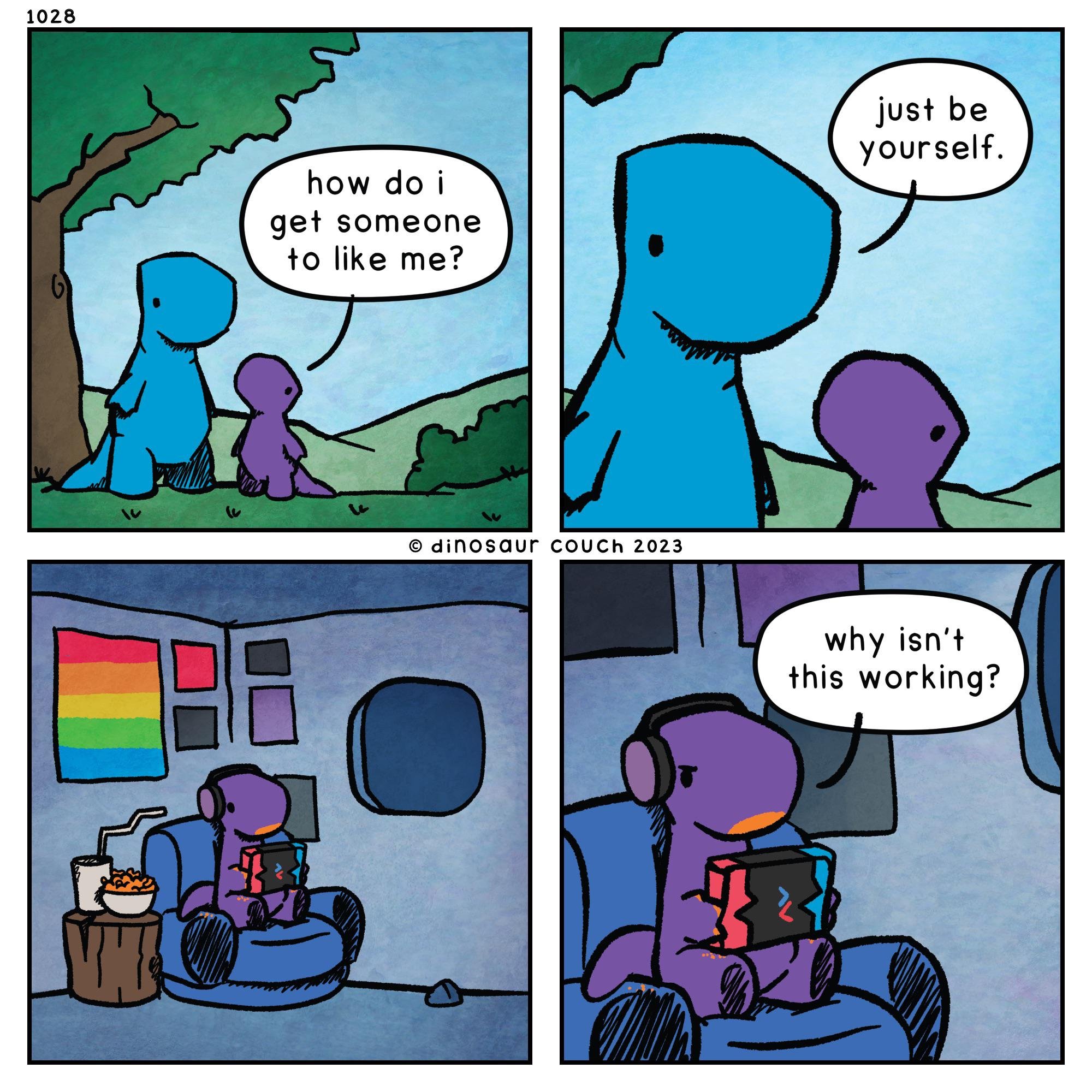96. Be Yourself ... but not always.
Ever been told, “Just be yourself” or the contradictory, “Fake it ‘til you make it?” Which advice should you actually follow?
Friendship Fact
A series of studies looked at this question and found that, “authentic expression predicted more positive outcomes,” including relationship satisfaction, more positive emotions, getting needs met, higher self-esteem, and fewer negative emotions.”
In contrast, being inauthentic predicted less autonomy and more negative emotions.
But, here’s where the plot thickens. The studies found that it’s always better to be real with yourself: “internal experiences of inauthenticity have been consistently shown to relate to poorer outcomes” … BUT, being authentic with others isn’t always the best choice.
When you’re choosing to be vulnerable, it’s not the act of disclosure that matters as much as the other person’s reaction—of acceptance or rejection. Ask yourself: Is this a trustworthy and supportive recipient of your authenticity?
Reflection
Sometimes it’s hard to know exactly what “be yourself” means. When I was in my teens, I was so focused on wanting to be liked and fitting in that I’m not sure I knew who “myself” was. Other people had big, distinct personalities, while mine—as an introvert—was more subtle. Maybe personalities are like accents—obvious in others, invisible in ourselves.
The problem with trying to fit in—and curating how we present ourselves (something social media has magnified)—is that when people like us, it feels hollow. Why? Because they’re liking our projected image—or a sliver of who we are—not the messy, multi-dimensional whole.
This was the strongest theme that emerged from a series of focus groups I ran exploring students’ experiences of loneliness. The pressure to appear successful led to imposter syndrome. Worse, by acting like they had it all together, no one was there to support them through difficult times … because it looked like they didn’t have any. When no one shares their struggles, it’s easy to feel like the only one having a hard time.
Image-management gets in the way of truly connecting.
Our mental energy is spent on constant self-monitoring instead of on being fully present with other people.
And, as Michael Franti sings in Stay Human, “All the freaky people make the beauty of the world.” Self-censorship damps down that beauty and diminishes connection.
Friendship Practice: Be Yourself
Spend a few minutes thinking about—or writing in response to the following questions:
How do you censor yourself to be liked, accepted, or present a certain image?
What do you see as the difference between fitting in and belonging? Who (individuals and groups) brings out feelings of belonging vs. fitting in?
Are there people you’d like to be more yourself with? What’s one small step you can take to be more yourself and test the reaction?
Weekly Question. Please share your responses in the comments—I love hearing from you!
Who are you able to be most fully yourself with? How can you spend more time with these people?


